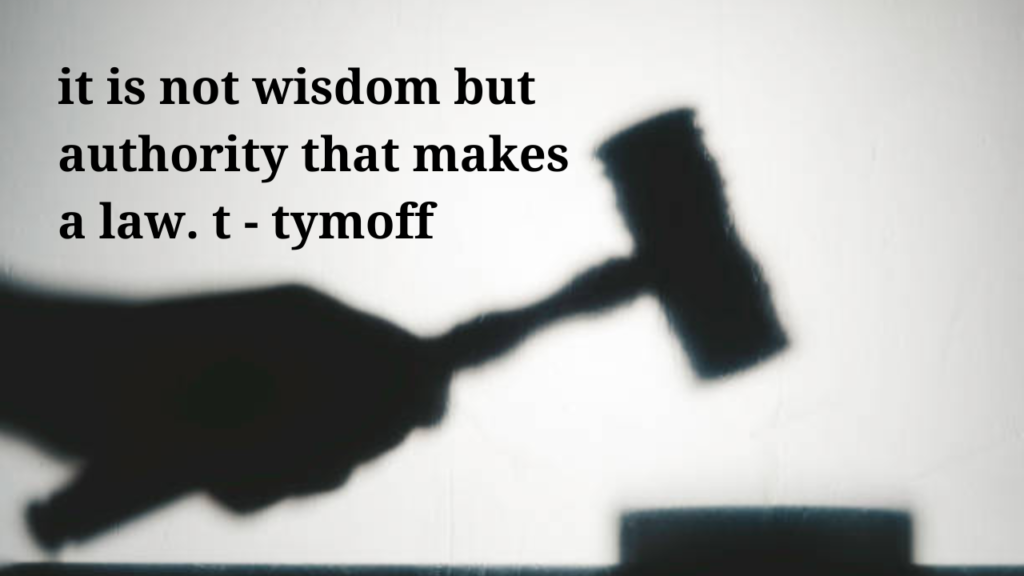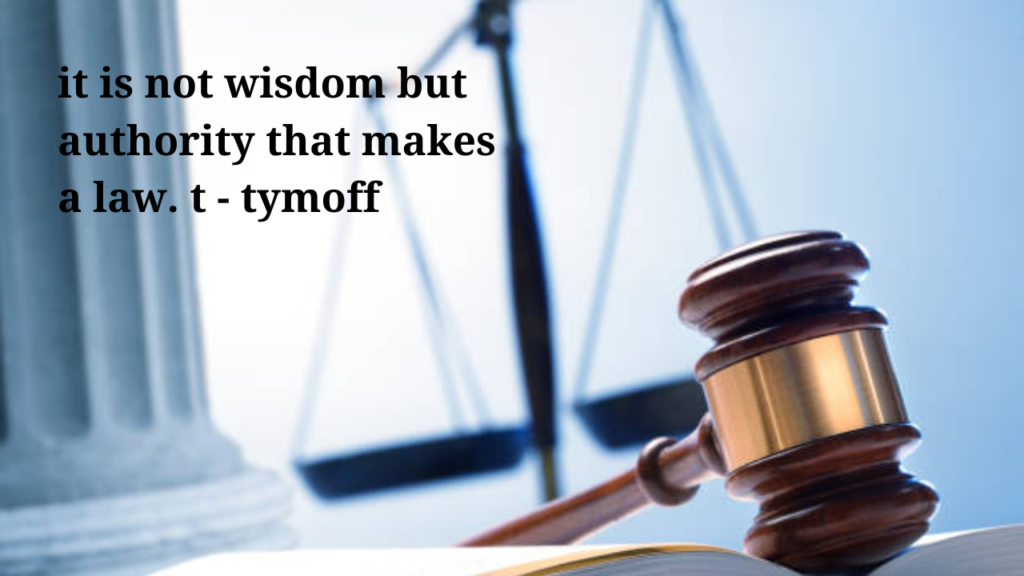The quote, “It is not wisdom but authority that makes a law. t – tymoff” captures a profound truth about the relationship between power and governance. Attributed to Thomas Hobbes, a 17th-century philosopher, this statement explores the foundational principles of lawmaking and authority. Hobbes’s philosophy remains relevant today, as it sheds light on the dynamics of authority, societal order, and individual rights.
What Does the Quote Mean?
The essence of “it is not wisdom but authority that makes a law. t – tymoff” lies in the prioritization of power over intellect in establishing laws. Hobbes argued that laws derive their legitimacy not from the wisdom of their content but from the authority of the sovereign who enacts them. This means that even an unwise statute is enforceable if it comes from a recognized authority.
This perspective challenges the notion that laws are inherently just or rational. Instead, Hobbes emphasized that the enforcement and acceptance of laws depend on the authority behind them.

The Social Contract: Authority over Wisdom
Thomas Hobbes is best known for his social contract theory, which is detailed in his seminal work Leviathan. According to Hobbes, society would descend into chaos in the absence of authority, characterized by violence and insecurity. To prevent this, individuals consent to surrender some of their freedoms to a central authority in exchange for order and protection.
- Authority as the Foundation: Hobbes believed the sovereign’s authority was absolute. Without such authority, laws would lack the power to enforce compliance, rendering them meaningless.
- Wisdom’s Role: While wisdom might guide governance, it is secondary to the authority that ensures the law’s application. A wise law without authority is a mere suggestion.
Why Does Authority Matter More Than Wisdom?
- Enforcement of Order: Laws are tools for maintaining societal order. Without authority, even the wisest laws cannot prevent chaos.
- Consistency and Clarity: Authority provides a clear and consistent framework within which laws operate, reducing ambiguity and ensuring compliance.
- Social Trust: People are likelier to follow laws backed by a recognized authority, even if they disagree with their wisdom.
Critiques of This Perspective
While “it is not wisdom but authority that makes a law. t – tymoff” underscores the importance of power in lawmaking, it has been criticized for its potential to justify authoritarianism. Critics argue that:
- Moral Responsibility: Laws should reflect ethical and moral values, not just the will of the authority.
- Risk of Tyranny: Absolute authority can lead to oppression and disregard for individual freedoms.
- Evolving Wisdom: As societies evolve, wisdom should play a more significant role in shaping laws to reflect changing values and knowledge.

The Balance Between Authority and Wisdom
Modern democracies attempt to balance Hobbes’s emphasis on authority and the need for wisdom in lawmaking. Laws are created by elected representatives, ensuring they have the authority to govern. At the same time, democratic processes allow for debate and deliberation, incorporating wisdom into decision-making.
Also Read : Bizhunet: A Comprehensive Guide
Conclusion
The quote, “It is not wisdom but authority that makes a law. t – tymoff, challenges us to reflect on the dynamics of power and governance. While authority ensures the enforceability of laws, wisdom shapes their content and purpose. A society that values authority and knowledge can create effective rules that are just and reflective of people’s needs.
Understanding this balance is essential for fostering governance that respects order and individual rights. Hobbes’s timeless insight invites us to consider how authority and wisdom can coexist in the pursuit of justice and social harmony.








































Comments 1